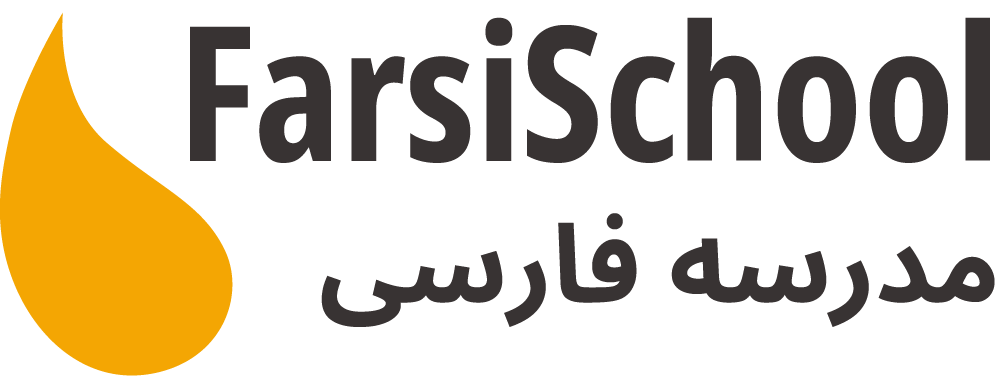Back to the wordpronoun آن / ân
pronoun آن / ân
ان دختر کوچک بود که اول ان شکل مرموز را از فاصله ی دور دید.
ân doxtar-e kučak bud ke aval ân šekl-e marmuz râ az fâsele -e dur did.
It was a little girl who first saw the mysterious shape in the distance.
ان دختر کوچک بود که اول ان شکل مرموز را از فاصله ی دور دید.
ân doxtar-e kučak bud ke aval ân šekl-e marmuz râ az fâsele -e dur did.
It was a little girl who first saw the mysterious shape in the distance.
وقتی که شکل نزدیکتر شد، او دید که ان یک زن باردار سنگین است.
vaqti ke šekl nazdiktar šod، u did ke ân yek zan-e bârdâr-e sangin ast.
As the shape moved closer, she saw that it was a heavily pregnant woman.
با کمرویی اما شجاعانه، دختر کوچک به ان زن نزدیک شد. خانواده ی ان دختر کوچک تصمیم گرفتند که" ما باید او را پیش خودمان نگه داریم. ما از او و کودکش مراقبت خواهیم کرد."
bâ kamruiy ammâ šojâ'âne، doxtar-e kučak be ân zan nazdik šod. xânevâde -e ân doxtar-e kučak tasmim gereftand ke" mâ bâyad u râ piš-e xodemân negah dârim. mâ az u va kudakeš morâqebat xâhyam kard."
Shy but brave, the little girl moved nearer to the woman. "We must keep her with us," the little girl's people decided. "We'll keep her and her child safe."
با کمرویی اما شجاعانه، دختر کوچک به ان زن نزدیک شد. خانواده ی ان دختر کوچک تصمیم گرفتند که" ما باید او را پیش خودمان نگه داریم. ما از او و کودکش مراقبت خواهیم کرد."
bâ kamruiy ammâ šojâ'âne، doxtar-e kučak be ân zan nazdik šod. xânevâde -e ân doxtar-e kučak tasmim gereftand ke" mâ bâyad u râ piš-e xodemân negah dârim. mâ az u va kudakeš morâqebat xâhyam kard."
Shy but brave, the little girl moved nearer to the woman. "We must keep her with us," the little girl's people decided. "We'll keep her and her child safe."
ولی وقتی انها بچه را دیدند، همگی از تعجب به عقب پریدند." یک خر!؟"
vali vaqti ânhâ bačče râ didand، hamegi az ta'job be aqab paridand." yek xar!؟"
But when they saw the baby, everyone jumped back in shock. "A donkey?!"
بنابراین ان زن دوباره خودش را تنها یافت. او پیش خودش فکر کرد که با این بچه ی عجیب و غریب چه می تواند بکند. او فکر کرد که با خودش چه کند.
banâbar in ân zan dobâre xodeš râ tanhâ yâft. u piš-e xodeš fekr kard ke bâ in bačče -e ajib v ğarib če mi tavânad bekonad. u fekr kard ke bâ xodeš če konad.
And so the woman found herself alone again. She wondered what to do with this awkward child. She wondered what to do with herself.
اما در اخر او مجبور شد بپذیرد که ان خر، بچه ی اوست و او مادرش است.
ammâ dar âxar u majbur šod bepazirad ke ân xar، bačče -e ust va u mâdareš ast.
But finally she had to accept that he was her child and she was his mother.
حالا اگر بچه همانقدر کوچک می ماند همه چیز می توانست متفاوت باشد. اما ان کره خر بزرگ و بزرگتر شد تا اینکه دیگر نمی توانست روی کمر مادرش جا بگیرد. و با اینکه خیلی تلاش می کرد نمی توانست مانند یک انسان عمل کند. مادرش اغلب خسته و درمانده بود. بعضی وقت ها او را مجبور می کرد کارهایی انجام دهد که مخصوص حیوانات است.
hâlâ agar bačče hamânqadr kučak mi mând hame čiz mi tavânest motefâvet bâšad. ammâ ân korre xar bozorg va bozorgtar šod tâ inke digar nemi tavânest ru-ye kamar-e mâdareš jâ begirad. va bâ inke xeyli talâš mi kard nemi tavânest mânand-e yek ensân amal konad. mâdareš ağlab xaste va darmânde bud. ba'zi vaqt hâ u râ majbur mi kard kârhâyi anjâm dehad ke maxsus-e heyvânat ast.
Now, if the child had stayed that same, small size, everything might have been different. But the donkey child grew and grew until he could no longer fit on his mother's back. And no matter how hard he tried, he could not behave like a human being. His mother was often tired and frustrated. Sometimes she made him do work meant for animals.
احساس سردرگمی و عصبانیت در درون خر به وجود امد. او نه می توانست این کار را انجام بدهد و نه ان کار را. او نه می توانست مانند انسان باشد و نه مانند حیوان. او به حدی عصبانی شد که یک روز مادرش را لگد زد و به زمین انداخت.
ehsâs-e sardargomi va asabâniyat dar darun-e xar be vojud âmad. u na mi tavânest in kâr râ anjâm bedehad va na ân kâr râ. u na mi tavânest mânand-e ensân bâšad va na mânand-e heyvân. u be hadi asabâni šod ke yek ruz mâdareš râ lagad zad va be zamin andâxt.
Confusion and anger built up inside Donkey. He couldn't do this and he couldn't do that. He couldn't be like this and he couldn't be like that. He became so angry that, one day, he kicked his mother to the ground.
 Dictionary
Dictionary